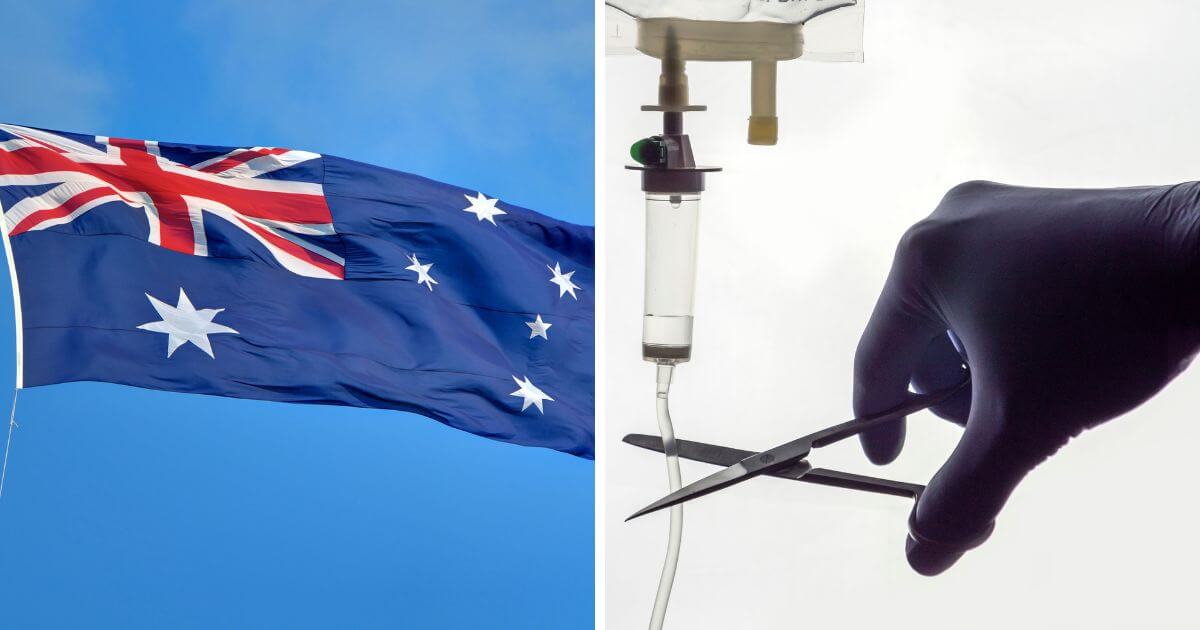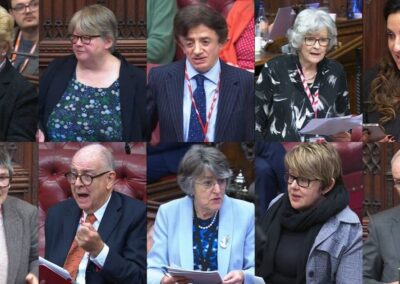Just six years after the law came into effect in June 2019, the assisted suicide and euthanasia programme in Victoria, Australia, has been significantly expanded.
The raft of changes made by the Government of Victoria, Australia, includes increasing the prognosis limit for those who want to end their lives by assisted suicide or euthanasia from 6 to 12 months and ending the restriction on doctors raising the possibility of assisted suicide or euthanasia with one of their patients unprompted, according to reports.
Previously, individuals had to have been given a prognosis of six months in order to access state assisted suicide or euthanasia, unless they had been diagnosed with a neurodegenerative disease, in which case, their prognosis could be extended to 12 months. Now, the law has been changed to double the eligible life expectancy to 12 months for all conditions.
Doctors will also be allowed to raise the topic of state assisted suicide and euthanasia unprompted with patients thought to be nearing the end of their lives for the first time, as well as requiring health practitioners who conscientiously object to assisted suicide and euthanasia to provide information to patients.
According to reports, the requirement for individuals with a neurodegenerative condition to have a third assessment before being able to end their lives by assisted suicide or euthanasia has also been removed. The time limit between the first and second access requests has been decreased, from nine days to only five days.
The eligibility rules have also been changed to allow people who have lived in Australia for only three years to end their lives by assisted suicide or euthanasia, even if they are not citizens or permanent residents of the country.
Additionally, changes to the law have been made to make it easier for medical practitioners to join the programme to administer assisted suicide. The eligibility rules for practitioners have been changed to make it easier for them to get involved in the programme, while permits have been simplified and a new administrative practitioner role has been created.
The Premier of Victoria, Jacinta Allan, said that the changes to the law would make assisted suicide “more compassionate”, and that the programme would still be focused on “keeping the safeguards secure”.
Assisted suicide is expanding across Australia
The changes in the law in Victoria come as assisted dying programmes are expanding across Australia.
In the Northern Territory, currently the only jurisdiction in Australia where assisted suicide and euthanasia are not legal, a government committee has recommended that the territory legislate to introduce assisted suicide and euthanasia without requiring a “prognosis timeframe” for people who wish to end their lives in this way.
In Queensland, the number of people who have ended their lives by euthanasia or assisted suicide has increased by over 35% for the year 2024-2025 compared with the previous year.
According to the ‘Queensland Voluntary Assisted Dying Review Board Annual Report’ released earlier this month, over a quarter of people (25.9%) who applied for euthanasia or assisted suicide in Queensland were not accessing palliative care at the time of their first assessment.
Only around 1 in 17 applicants (6%) had a neurological condition, a relatively small proportion, despite the need for people with neurological conditions to access assisted suicide or euthanasia regularly being referred to by campaigners as a key reason for introducing assisted suicide and euthanasia.
Expansion of the laws in Australia sets a dangerous precedent for assisted suicide in England and Wales
The expansion of the assisted suicide laws in Australia comes at the same time as the assisted suicide Bill makes its way through the House of Lords. The proposed legislation, named the Terminally Ill Adults (End of Life) Bill, would make it possible for individuals who are thought to have six months or less to live to end their lives by assisted suicide.
During the Bill’s Second Reading, at which 67% of Peers who spoke did so in opposition to the Bill, the rapid expansion of assisted suicide laws was a key worry of those who opposed the Bill.
Lord Curry noted how “the scope for eligibility continues to be expanded” in Canada, where ‘assisted dying’ is already a money-saving scheme, reiterating how legalising assisted suicide hands the state power to cut costs at the expense of vulnerable lives.
Baroness Meyer highlighted how “assisted dying has become routine and is now the fifth leading cause of death” in Canada, only nine years on from legalisation, accounting for 4.7% of all deaths in the country.
Spokesperson for Right To Life UK, Catherine Robinson, said “The removal of safeguards and the expansion of assisted suicide and euthanasia in Victoria, Australia, is a worrying, yet unsurprising, development. It provides yet another example of how the slippery slope of assisted suicide is real, and that there is a clear tendency towards reducing safeguards and widening the eligibility criteria in places where assisted suicide has been legalised”.
“Many speakers in the debate at Second Reading pointed out harrowing examples from around the world of how assisted suicide laws tend to expand. Peers would do well to heed these warnings, and ensure that the dangerous assisted suicide Bill never becomes law in England and Wales”.












